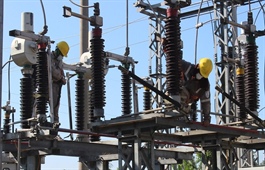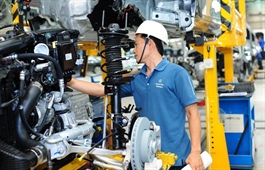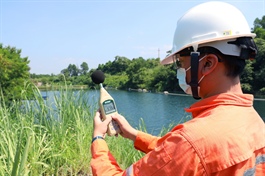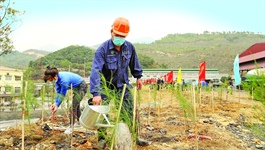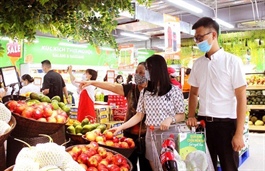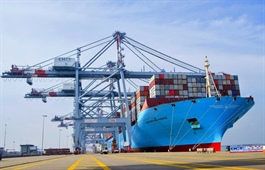Seafood exporters face challenging second half of 2022: conference
Seafood exporters face challenging second half of 2022: conference
Seafood exporters in Viet Nam may find the second half of 2022 a challenging period compared to the first due to slowing global economic growth, despite a successful first half of the year, according to a conference held by the Viet Nam Association of Seafood Exporters and Producers.

Since the start of 2022, seafood businesses have been focusing on recovering their production, increasing exports and networking with partners after the COVID-stricken year of 2021.
Exports of seafood in the first five months of the year reached US$4.7 billion, a 42 per cent increase year-on-year.
During the conference held in HCM City on Wednesday, Truong Dinh Hoe, general secretary of the association, said that export prices grew by up to 15 per cent, and markets grew around the world.
The association has been focusing on helping businesses overcome their difficulties, facilitating trade, educating members on free trade agreements, and calling for more favourable policies.
However, he noted that inflation is occuring around the world, and international transportation fees have increased strongly due to rising petrol prices.
China is also still maintaining its “zero COVID” policies, hindering Viet Nam’s exports to this traditionally lucrative market.
“While export is expected to reach around $6 billion in the first half of 2022, we can only strive for $10 billion by the end of the year,” Hoe said.
Viet Nam has still been unable to remove the European Commission’s “yellow card”, which was issued in 2017 against Vietnamese seafood exports to its market because of insufficient efforts to meet the EC's regulations to prevent, deter and eliminate IUU (Illegal, Unreported and Unregulated) fishing.
Do Ngoc Tai, general director of Ngoc Tri Seafood Processing JSC, said that the first five months of 2022 have been very lucrative for the shrimp industry, with exports increasing by 41 per cent compared to the same period last year.
However, seafood exports are expected to fall for the next few months, only picking up slightly at the end of the year amid holiday demand, due to global inflation, rising petrol prices, and the Russia – Ukraine conflict.
Some markets are still heavily affected by COVID, leading to lower demand, he said.
Rising petrol prices are also hindering fishing trips (including in Viet Nam), leading to a drop in raw fish supply, in addition to making fish and shrimp farming more expensive, according to experts at the conference.
Truong Thi Tuyet Hoa, a representative of seafood company Vinh Hoan JSC, said that exporters should look into filling in seafood supply shortages in markets around the world, such as selling Vietnamese shark catfish to countries with a shortage of pollock supply from Russia.
Exporters have to maintain competitive selling prices and high quality products, she said.
More trade facilitation events and connecting fish farmers to manufacturers to ensure stable supply are also important, Hoa said.




